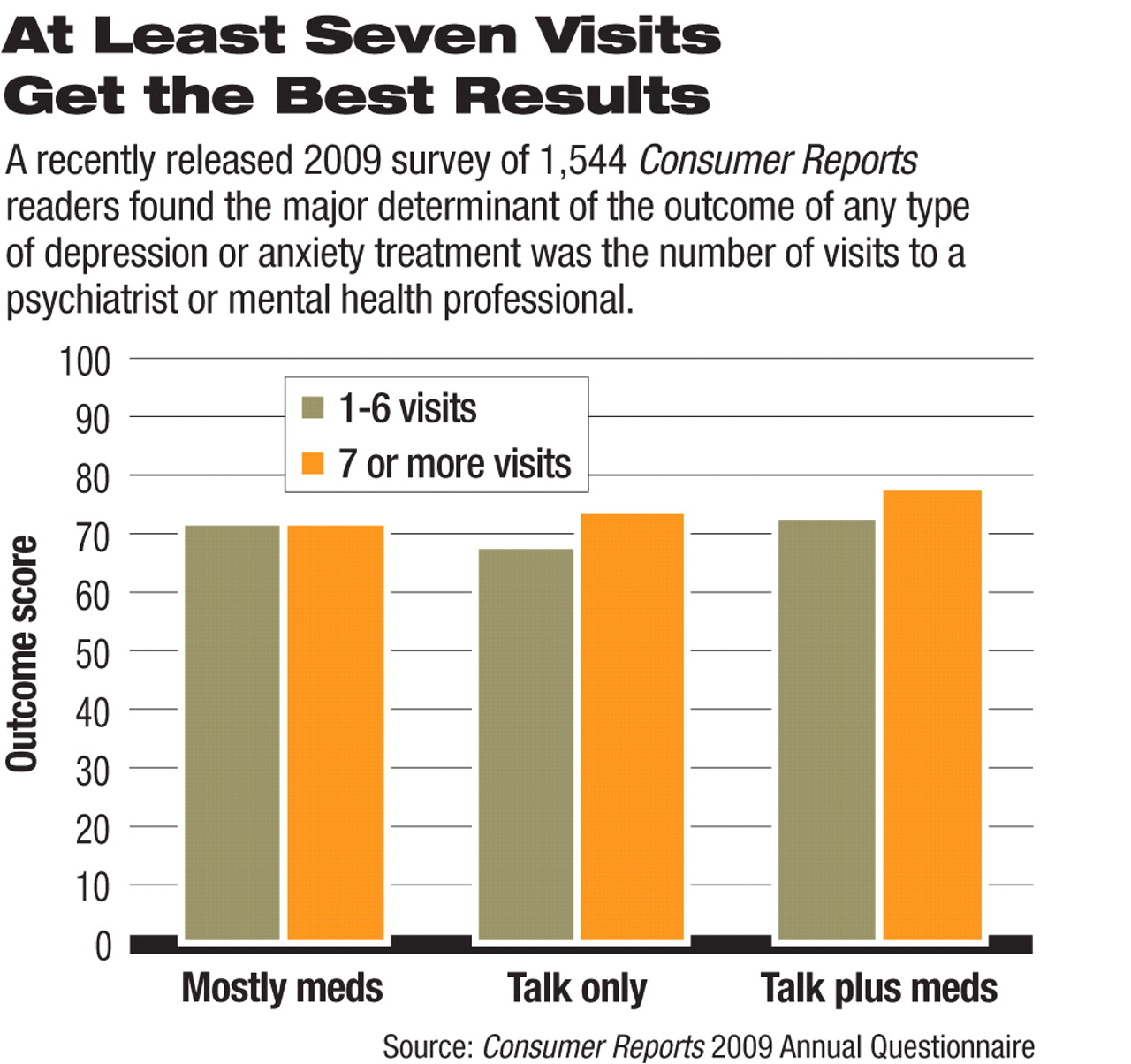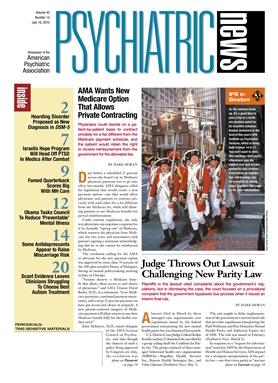The use of so-called talk therapy provided by psychiatrists and mental health professionals in treating both depression and anxiety received a boost in a recent poll of patients, who responded that it was as effective for them as prescribed antidepressants. The best results were reported for combined therapy.
The 2009 survey of 1,544 Consumer Reports readers who indicated that they had sought treatment for depression, anxiety, or both from January 2006 to April 2009 found that patient satisfaction levels were similar regardless of whether their treatment consisted of medication alone or talk therapy alone.
The survey responses, published in the July Consumer Reports, indicated that the highest satisfaction, however, was associated with combination therapy that included at least seven visits to a psychiatrist or mental health professional as well as medication.
The findings echoed those from a similar survey that Consumers Union, the nonprofit organization that publishes Consumer Reports, conducted six years earlier. Those findings also agree with previous academic studies on the clinical efficacy of combining psychotherapies and medication treatments, as well as the superior results provided by longer-term psychotherapies, especially among patients with mild or moderate depression.
“Most of us believe, and most studies show, that psychotherapy works, that antidepressants work, and that psychotherapy and well-selected medications tend to produce better outcomes than either modality alone,” Robert Roca, M.D., M.P.H., vice chair of APA's Council on Adult Psychiatry, told Psychiatric News.
The biggest impact of talk therapies appeared when patients had at least seven therapy sessions.
“That was where there was a jump in the outcome score,” said Jamie Hirsh, associate health editor for Consumer Reports, in an interview with Psychiatric News. “With [talk] therapy there seems to be this trend where the longer people go [to therapy sessions], the better they do.”
No similar improvement in patient benefit was reported based on the number of medication-management visits, although nearly 80 percent of the respondents said they were treated with antidepressants.
However, survey respondents rated psychiatrists as being more beneficial than mental health professionals (which the survey authors defined as psychologists, social workers, and licensed professional counselors). The authors based this determination on a score that rated “helpfulness,” self-assessed improvement, and overall satisfaction.
A majority of respondents (59 percent) treated by psychiatrists received both medication and some form of talk therapy, while 41 percent were treated only with medication.
“I found it interesting and encouraging that most patients who saw psychiatrists received psychotherapy as well as medications,” noted Roca about the survey results.
Among those who received antidepressant medications for their illness, a minority of respondents—47 percent—said they were prescribed by a psychiatrist; the rest said they were prescribed by a primary care physician.
The survey, based on self-selecting respondents, is not intended as a nationally representative sample. The average age of the survey respondents was 58, with 30 percent reporting depression only, 18 percent having anxiety only, and 52 percent suffering from both disorders. The diagnoses respondents reported were not verified.
The experience of respondents with side effects from antidepressants varied considerably. In general, the selective serotonin reuptake inhibitors (SSRIs) had lower rates of side effects than did the newer serotonin-norepinephrine reuptake inhibitors (SNRIs). However, the patients who took SSRIs were about as likely as patients who took SNRIs to find them helpful, 53 percent versus 49 percent.
“Most of us believe that SSRIs are better tolerated than other agents but recognize that they produce side effects that discourage some patients from taking them,” Roca noted.
The side-effect rates reported for antidepressant use in this survey were generally higher than those reported in drug-company clinical studies, according to Consumer Reports.
The editors who prepared the Consumer Reports analysis acknowledged the nonscientific nature of their survey, but pointed out that “results provide a window onto mental health treatment as it's practiced in the real world, as opposed to the carefully controlled environment of clinical trials or psychiatric drugs.”

